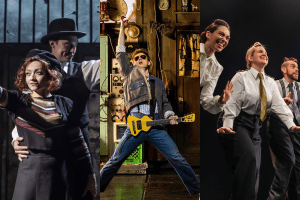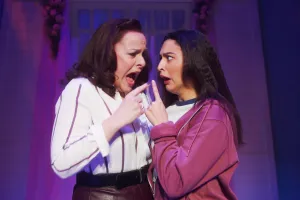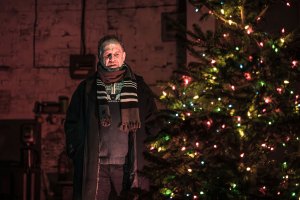Kully Thiarai On …Transform
The Transform season aims to reflect changing landscapes within the cultural arts. Joanne Hartley speaks to Kully Thiarai, one of the curators of this exciting new venture to find out more…
So, is everything ready and set for Transform to begin and run smoothly over the next couple of weeks?
We’ve been working on Transform since West Yorkshire Playhouse first began conversations with us back in September but it really kicks off following the bank holiday when we’re in the space, we’ll start fitting up various elements of the show and some of the creative team will make a start on the work they’ll be developing especially for Transform over the two weeks.
You’re involved with developing a piece of work for Transform too aren’t you?
Both myself and Alan Lane, who is the other curator for Transform are working on the development of two new solo pieces. One is a La Mamba which is an adaptation of an autobiography of George Obama who is half brother to Barack Obama. La Mamba is Swahili for crocodile and the young George was at one point a gangster who ended up in jail. The story is about how he turned his life around and how the two brothers’ lives have been so very different. It’s a really interesting project… and Alan’s doing The Tagore Project based around a war story about a historic production of The Post Office, which was performed by a youth theatre in Warsaw Ghetto just weeks before the ghetto was liquidated. Alan is working with Maya Chowdhary and that project is very open ended at the moment…
What was your approach to selecting the artists and programming them?
The West Yorkshire Playhouse were interested in the kinds of relationships they weren’t currently having with artists because of the scale of the spaces at the West Yorkshire Playhouse and because of the kinds of work that the artists were creating. We began to ask ; ‘Who’s out there? Who’s interested and who might want to come and explore some new ideas? Who can the West Yorkshire Playhouse build new relationships with?’ We looked at it from the broader regional context. We asked,‘Who in the region doing interesting work doesn’t currently have a relationship with the Playhouse?’ We also wanted to bring to the region work that wasn’t coming here or that hadn’t appeared in the region so there were a number of elements in the decision making process.
You’ve invited applications to from writers, directors and performers in the locality to work with Peeplolykus on The Ionian Enchantment and Geraldine Pilgrim on her performance of Handbag. What have the responses been like?
There’s been a real enthusiasm which it is very exciting. We wanted a programme that wasn’t about a passively sitting spectator watching the work. We wanted audience members to be able to participate, interrogate and question… So a number of the projects allow you to have some sort interaction with the piece if you want to. If you don’t want to that’s equally ok, you can sit and watch something, but we wanted to create a space where that conversation could be very active between the performer and the audience.
Do you think that audiences who are used to a more traditional style of performance may be hesitant about this new kind of theatre experience?
I think the programme allows you to connect in a variety of different ways. At one end of the scale it’s possible to come in and just to see a reading of a piece and at the other end of the scale the audience can be much more actively involved in being part of a story. There’s a range of places in which you can place yourself as an audience member depending on how far you want to go. You have an active choice in that.
What kind of transformations will be taking place?
The questions we’ve had from the very beginning for the artists we’ve been working with have been; ‘How is the work that you’re trying to do or want to do transformative for you as a company? How is it transformative for the audience and how might it be transformative for the West Yorkshire Playhouse?’
What kind of answers did you get to those questions?
I think the programme itself should highlight the answers to that question and the audience can come along, participate and ask themselves in which ways they have been transformed. The work we’ve selected ranges from the one on one experience like Folk in a Box or A Soldier’s Song right through to Peepolykeus working with scientists and young people to explore big ideas about our world and wanting to interrogate subject matter that we in the arts haven’t always interrogated in quite that way. The best theatre is where you are surprised and also you go away with a greater understanding things or a greater sense of reflection on your own perspective on the world. Or perhaps you pose a question that you go away thinking about. We believe that artists can be provocateurs of a conversation and this philosophy is embedded in what we’re trying to do.
Do you have an audience in mind?
Everybody! The Playhouse has a strong committed audience but we’re also interested in the audience that the Playhouse hasn’t met yet. I’m interested in audiences that don’t see the Playhouse’s current programme as something for them. I think this menu of work will hopefully will broaden that reach at the same time as allowing the audience who are very established to try some new things.
Is there anything you’re particularly looking forward to?
I think it’s very exciting for the journey for the Playhouse and for us in Leeds and I think the energy of having a large number of artists and members of the public in one space having a creative conversation is what’s really exciting for me.
Tickets for Transform can be booked by calling West Yorkshire Playhouse Box Office on 0113 213 7700 or by visiting www.wyp.org.uk












